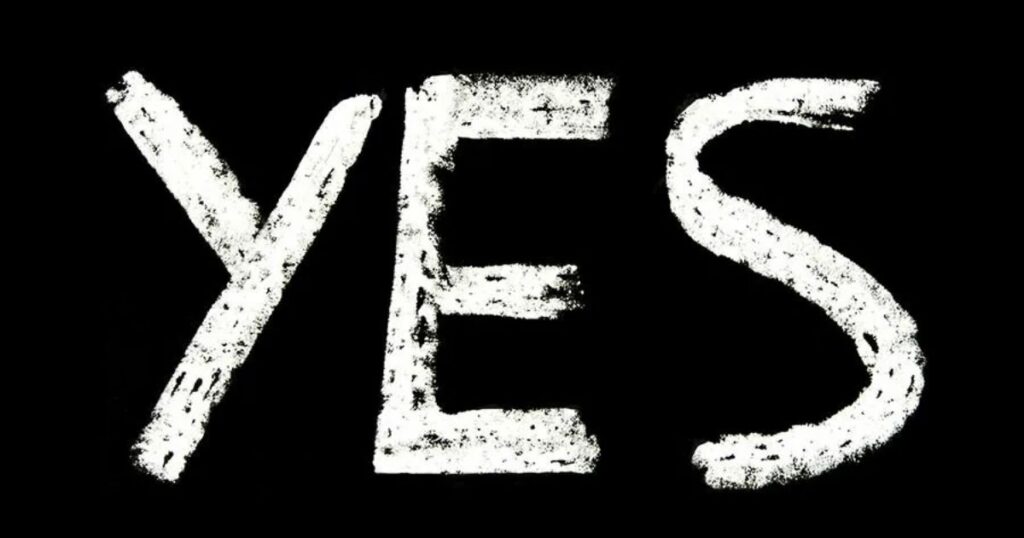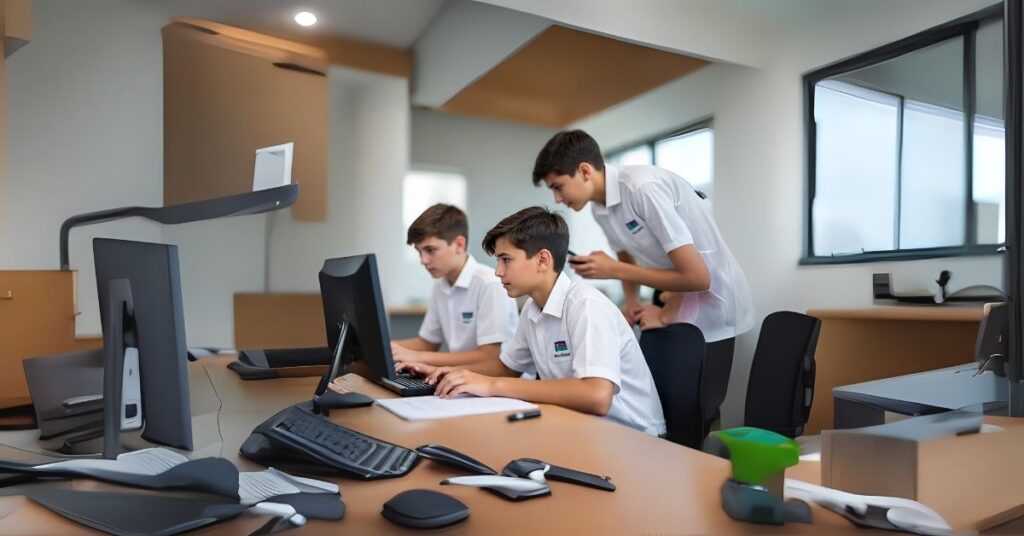Ever find yourself saying “Yes” over and over again in conversations? While it’s the go-to response, there’s a whole world of alternatives out there that can make your answers sound more engaging and professional. Whether you’re chatting with a friend or making a decision in a meeting, mixing up your responses can add personality and precision to your communication.
Instead of just saying “Yes,” you can say “Sure,” “Absolutely,” or “Certainly,” depending on the tone and situation. Each alternative brings something different to the table, making your response feel more fitting for the context. So, why stick with just one when you can choose from many ways to say “Yes”? Let’s dive into these alternatives and learn how to use them for clearer, more effective communication.
Alternatives to “Yes“
When responding affirmatively, the word “Yes” is often the simplest way to show agreement. However, sometimes it’s beneficial to mix things up. Exploring alternatives to “Yes” can add variety to conversations, making them more engaging. Different expressions convey the same idea while matching the tone and context.
1. Absolutely
Example: “Absolutely, I think that’s a fantastic idea!”
Meaning: This expression conveys an unreserved, enthusiastic agreement. It leaves no room for doubt and often indicates strong personal conviction or support.
Usage: Great for showing strong support or certainty. Perfect for both professional settings and casual conversation when you want to emphasize your full commitment.
2. Certainly
Example: “Certainly, I’ll take care of that task right away.”
Meaning: “Certainly” conveys a polite, formal agreement, indicating that you’re fully prepared to follow through. It shows respect and consideration for the other person’s request.
Usage: Ideal for formal settings or when you need to express support with a professional tone. It’s also suitable when showing clarity and precision in technical discussions.
3. Indeed
Example: “Indeed, I think you’ve made an excellent point.”
Meaning: “Indeed” is a more thoughtful confirmation, often used to emphasize agreement while reinforcing a prior statement. It can also express respect for someone else’s opinion.
Usage: Works well in professional settings, technical discussions, or when affirming someone’s argument with a touch of sophistication.
4. Definitely
Example: “Definitely, I’ll be there for the meeting.”
Meaning: This word exudes enthusiasm and commitment. It shows unwavering certainty and often conveys a sense of eagerness to participate.
Usage: Best for situations where you want to express unqualified approval and enthusiasm. It’s a strong, straightforward response that works in casual conversation and professional settings alike.
5. Of Course
Example: “Of course, I’d be happy to help with that.”
Meaning: “Of course” is a casual, easygoing response that shows you agree and are willing to assist without hesitation. It implies that the action is so expected that no further confirmation is needed.
Usage: Perfect for relaxed settings or when reinforcing a shared understanding in informal conversations. It’s also great for showing reassurance and support.
Read More: 12 Creative Ways to Say “Welcome”
6. Sure Thing
Example: “Sure thing, I’ve got it covered.”
Meaning: This phrase is casual and friendly, indicating that you’re fully on board with the request. It conveys a relaxed, confident approval without any formalities.
Usage: Best for informal conversations and when you want to convey a neutral expression with a touch of enthusiasm. Ideal for casual conversation with friends, family, or colleagues.
7. Agreed
Example: “Agreed, let’s go ahead and finalize the details.”
Meaning: “Agreed” is a direct, clear affirmation, often used to signal that everyone is on the same page. It’s typically used when there’s mutual understanding or a mutual decision to proceed.
Usage: Excellent for professional communication and technical discussions, especially when confirming shared opinions or plans in a formal context.
8. Understood
Example: “Understood, I’ll handle the project from here.”
Meaning: This phrase indicates comprehension and agreement. It shows that you’ve received the instructions and are ready to act on them.
Usage: Often used in military settings, professional communication, or technical discussions, where clarity and precision are paramount. It conveys that the message has been processed and accepted without ambiguity.
9. Affirmative
Example: “Affirmative, the operation will proceed as planned.”
Meaning: “Affirmative” is a formal, technical affirmation that confirms something with certainty. It’s used in high-stakes or formal situations to indicate that the request or instruction is accepted.
Usage: Commonly found in military settings, technical discussions, and professional settings. It’s a precise and no-nonsense response that leaves no room for doubt.
10. By All Means
Example: “By all means, feel free to lead the meeting.”
Meaning: This phrase goes beyond just agreeing—it shows eagerness and full approval. It conveys that you’re giving permission with enthusiasm, encouraging action.
Usage: Best for situations where you want to encourage someone to take action or show enthusiasm in professional settings or casual conversations. It’s perfect when you want to signal support while fostering relationship dynamics.
When to Use Different Alternatives to “Yes”

Choosing the right way to say “yes” can enhance the tone of your communication, whether you’re in a formal or casual setting. Below are some scenarios where different alternatives to “Yes” can make your response more appropriate and effective.
Formal Settings:
In professional environments, expressions like “Certainly,” “Affirmative,” or “Agreed” are ideal. These alternatives convey respect and professionalism, ensuring clarity and precision in communication. For instance, when confirming a business decision or agreeing on a project plan, using formal terms adds to the seriousness and structure of the conversation.
Casual setting:
For everyday chats or informal exchanges, casual affirmations such as “Sure thing,” “Absolutely,” or “Of course” work well. These alternatives reflect a relaxed, friendly tone that helps build rapport. Whether agreeing to hang out with friends or confirming a simple request, casual alternatives make interactions feel more personable and comfortable.
When Offering Reassurance:
When you need to offer comfort or validation, phrases like “Of course” or “By all means” are perfect. These words suggest not just agreement, but also an eagerness to assist, making others feel supported. For example, if a colleague expresses worry about completing a task, saying “Of course, I’ll help!” provides reassurance.
When Confirming Understanding:
In situations where clarity and comprehension are key, “Understood” or “Indeed” can be helpful. These words confirm that the message has been received and comprehended. Whether it’s a set of instructions at work or confirming a request in a meeting, using these alternatives indicates that you’re on the same page and ready to proceed.
Conclusion
In conclusion, using alternatives to “Yes” can make your responses more engaging and clear. Whether you’re in a casual chat or a professional meeting, changing up your answers helps set the right tone. It shows you understand the situation and the context. For example, in a relaxed conversation, you might say “Sure” or “Absolutely.”
In a formal setting, try “Certainly” or “Affirmative.” These alternatives to “Yes” add clarity and personality to your communication. Next time you agree with someone, try one of these options instead of the usual “Yes.” It will make your responses more interesting and fitting for the moment.
FAQ’s
What are some casual alternatives to saying Yes?
Other ways to say Yes in casual conversations include “Sure,” “Absolutely,” and “Of course.” These phrases sound friendly and relaxed.
When should I use formal alternatives to Yes?
In professional settings, use Other Ways to Say Yes like “Certainly” or “Affirmative” to sound clear and respectful in communication.
Can I use alternatives to Yes in emails?
Yes, you can! Using Other Ways to Say Yes in emails adds variety and helps communicate agreement clearly, especially in formal contexts.
What’s the best way to say Yes in a meeting?
For meetings, Other Ways to Say Yes like “Agreed” or “Understood” show strong support and professionalism, fitting the tone of the conversation.
Does using alternatives to Yes change the meaning?
Yes, choosing Other Ways to Say Yes can change the tone or level of enthusiasm. Be mindful of context to ensure clarity in communication.

Grammerroot is your trusted source for mastering English grammar and language skills. From simple rules to advanced tips, we help learners build strong foundations through easy-to-understand content. Learn smart, learn right — only at Grammer Root.




